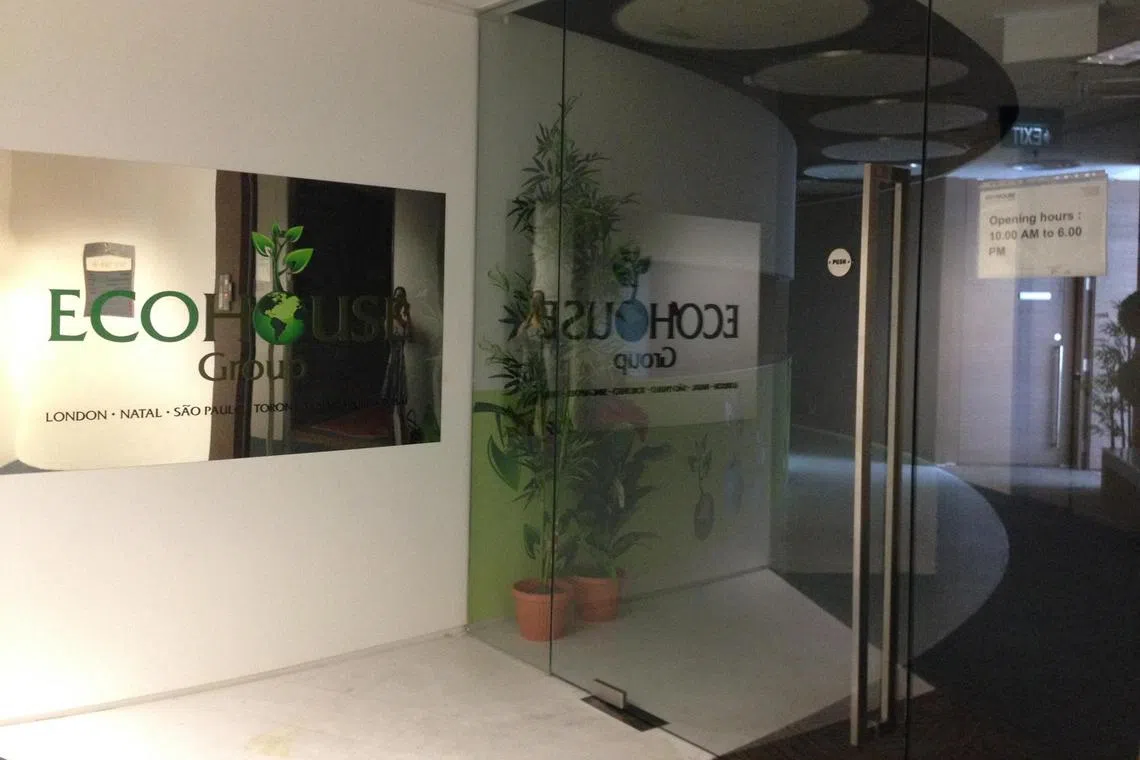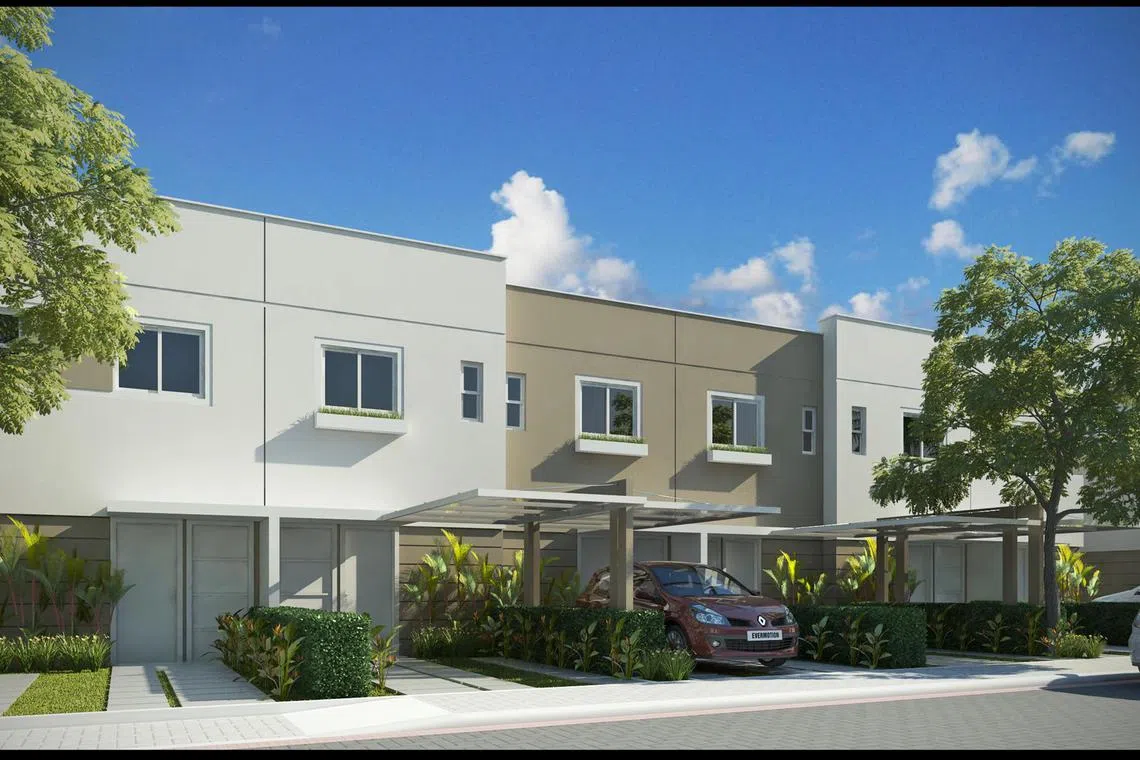Couple who invested $600k in alleged Brazil housing scam sue Singapore marketer
Sign up now: Get ST's newsletters delivered to your inbox

Mr David Haw and Ms Cindy Yee alleged that they were misled into investing in the projects through London-based firm Ecohouse.
PHOTO: ST FILE
Follow topic:
SINGAPORE - A couple who invested close to $600,000 in two social housing projects in Brazil which turned out to be worthless have sued Singapore marketer Wendy Kwek to recoup their investments.
In their lawsuit, Mr David Haw and Ms Cindy Yee alleged that they were misled into investing in the projects through London-based firm Ecohouse, as a result of false representations by Ms Kwek.
They alleged that Ms Kwek said during presentations and in e-mails that the developments were approved by the Brazilian government, that she had done due diligence checks, and that investors would earn a return of 20 per cent within a year.
The plaintiffs have also sued Ms Kwek’s former husband, Mr Joey Poh, as well as four companies linked to them: WK Events, WK Investment Network, Ecohouse Developments Asia Pacific and Ecohouse Singapore.
Ms Kwek and Mr Poh have denied the allegations, and said they are also victims who lost their investments in one of the projects.
The case is being heard in the High Court.
Ecohouse, which was founded by Briton Anthony Armstrong Emery, was put on the Monetary Authority of Singapore investor alert list in 2014 after investors here complained that they were not being paid.
Since 2011, between 800 and 1,500 Singapore investors were estimated to have put in more than $65 million into three housing projects. It later emerged that Ecohouse did not own the land it was purportedly developing and was not working with the Brazilian government.
In the current case, the plaintiffs invested $230,000 in a project known as Casa Nova in September 2012. They invested another $368,000 in a project known as Bosque in December 2012.
According to court documents, the contracts promised that construction of the houses would be completed within a year, when the investments would be returned with a profit of 10 per cent per annum.
The money was held by English law firm Saunders & Co in an escrow account, which was later drained.
The plaintiffs, who are represented by Mr Andrew Goh, alleged that Ms Kwek made misrepresentations at the presentations for each project.
In July 2012, Ms Yee was invited to attend a presentation for the Casa Nova project after she paid $2,995 to attend a two-day training event and to join Ms Kwek’s investment network.
Both sides dispute what took place at the presentation.
The plaintiffs said Ms Kwek told the audience that Casa Nova was a safe investment, that she had spent a six-figure sum on checks to ensure it was approved by the Brazilian government, and that investors could earn a 20 per cent rate of return.
They alleged that Mr Poh, who was also at this presentation, endorsed specific representations by smiling and nodding his head when Ms Kwek said he had spent a year in Brazil studying the project.
Ms Kwek, who is represented by Ms Anna Oei, said she did not make these representations but simply introduced Mr Armstrong Emery and made general remarks about overseas investments.
Mr Poh, who is represented by Mr Sng Kheng Huat, said he had indeed gone to Brazil and met a lawyer who provided a due diligence report as well as a representative of the bank that was supporting the project.
In August 2012, Ms Yee received the presentation slides in an e-mail.

An artist’s impression of Bosque Residencial in Natal, north-eastern Brazil. The plaintiffs invested $368,000 into the project in December 2012.
PHOTO: ECOHOUSE GROUP
In October 2012, she was invited to attend a presentation for the Bosque project. The invitation e-mail stated an “intention... to provide year-on-year 20 per cent returns”.
The plaintiffs alleged that the claims for the Casa Nova project were repeated by Ms Kwek at the presentation for the Bosque project, which Mr Poh did not attend.
In 2013, Ms Yee received an e-mail from Ecohouse asking all Casa Nova investors to extend their investments. The plaintiffs then signed two deeds to modify their original contracts.
They have not received any return on their investment or the return of their capital.


